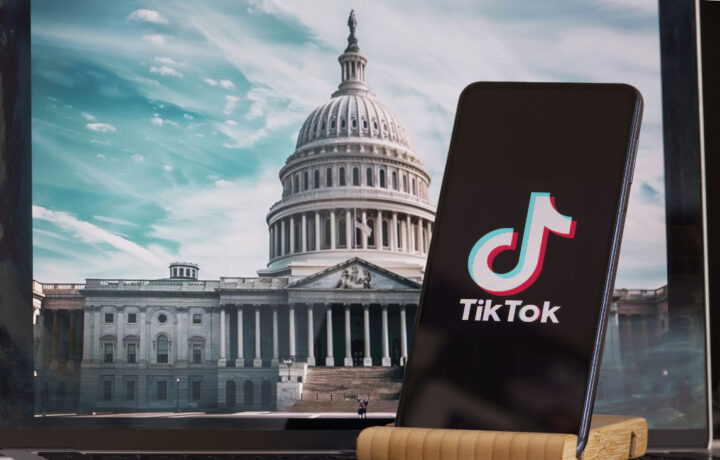Just days before taking office, President Donald Trump pledged to find a solution to TikTok’s legal woes. The popular video-sharing app faced a ban in the U.S. until it cut ties with its Chinese-owned parent company ByteDance. In an interview with NBC News on Saturday, he said he was considering a 90-day extension to allow the social media app to be sold. ByteDance has had months to find a buyer and has repeatedly refused such a deal.
The service was back online on Sunday. The President has suggested that the U.S. would have 50% ownership, seeking to find a way forward that might be beneficial.
Is 50% Ownership Enough?
Last year, Congress passed legislation that called for a ban on TikTok due to its ties with China, and concerns that it could share data about U.S. citizens with Beijing. In addition, some lawmakers have warned that the platform could be used to spread misinformation and even disinformation to undermine elections and support China’s agenda on the global stage.
ByteDance has disputed the claims.
Even with 50% ownership, however, it seems unlikely all ties to China wouldn’t be cut.
“The ownership of a company doesn’t necessarily make it safer, but it could have legal implications, so until we know more, it’s mostly political speech at this point,” suggested Lawrence Pingree, vice president with cybersecurity provider Dispersive.
A change of ownership could change the way the company operates.
Ted Miracco, CEO of mobile security provider Approov, told ClearanceJobs that U.S. co-ownership would still be a step in the right direction – but only to a point.
Co-ownership, particularly with significant U.S. involvement, could help address issues of accountability by bringing stakeholders closer to the U.S. legal system,” explained Miracco. “This arrangement would make it easier to hold the company accountable for any inappropriate behavior, as both civil and criminal proceedings could be pursued more effectively. However, while this could address some concerns, it may not fully resolve the broader geopolitical and data security issues tied to TikTok’s operations.”
Data Collection Concerns Remain
Social media companies have proven very good at data collection of their users, and even with U.S. ownership that isn’t likely to change in the least with TikTok.
“The core issue of data privacy and security remains even with co-ownership. While U.S. stakeholders might have more leverage in terms of accountability, the fundamental concern is how TikTok collects and handles user data, particularly given its ties to China,” added Miracco. “Even with co-ownership, there’s a risk that some data could still be accessed by Chinese authorities, depending on how the platform’s infrastructure and operations are structured.”
If anything, the ongoing saga over TikTok could put the role social media is playing in data collection, the spread of misinformation, and the negative impact it has on America’s youth in the spotlight.
“One could argue that if we’re focusing on accountability, there’s a notable inconsistency in how social media platforms are regulated and held responsible for their actions,” said Miracco.
He told ClearnaceJobs that many platforms including Facebook, X, and others have faced widespread criticism for issues like data privacy violations, the spread of misinformation, manipulation of elections, and the use of user data for personal gain.
“Yet, despite these significant harms, they have largely avoided serious consequences or any legal repercussions, especially when it comes to holding their owners and executives personally accountable,” Miracco warned. “This discrepancy raises important questions about the fairness and effectiveness of current regulatory frameworks.”
The Bigger Picture
China’s ability to gather data is still the core issue, but U.S. companies are doing the same. It may be time to look beyond the ownership, and where the CEOs reside, and more on how the platforms are making billions of dollars from the data they’re collecting.
As previously reported, some TikTok refugees – who have moved to RedNote and similar competitors – have said they expect their data to be mined. One difference is that TikTok and RedNote have been more open than the firms based in America.
“If TikTok is being scrutinized for its potential risks, it’s reasonable to ask why other platforms, which have caused significant harm both domestically and internationally, have largely escaped similar scrutiny,” Miracco noted. “There is a larger conversation to be had about the regulatory and legal frameworks that govern all social media platforms, to ensure that these companies are held to the same standards, regardless of their country of origin.”



